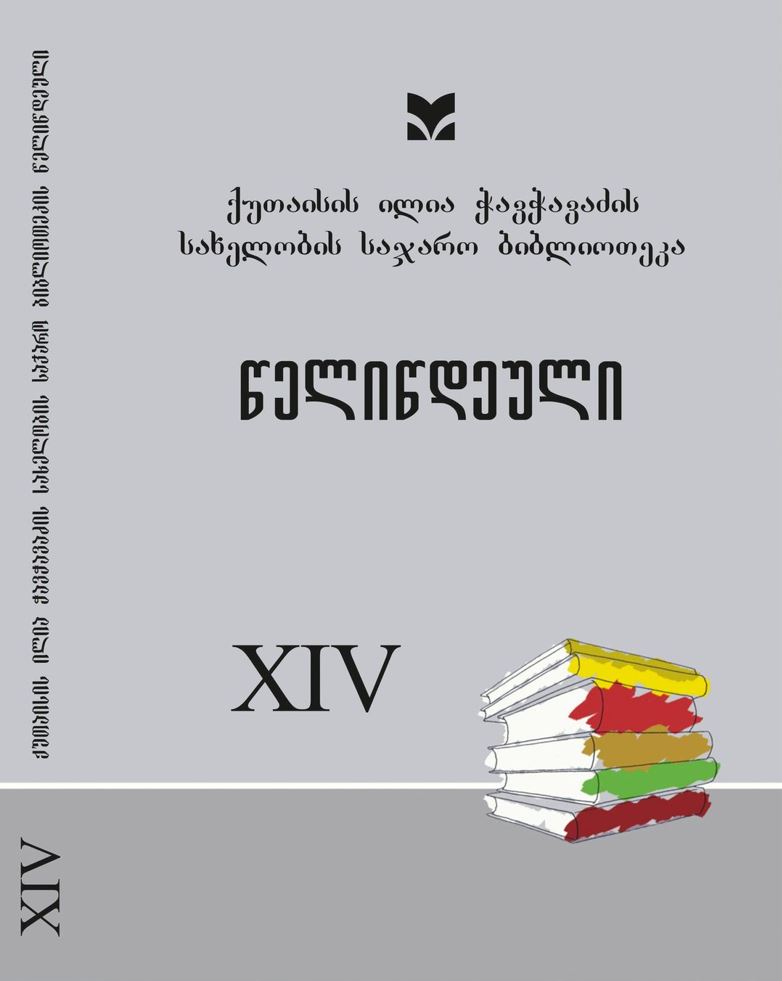გორში მცხოვრებ ჩხორთოლელთა მეტყველების ზოგიერთი თავისებურება
DOI:
https://doi.org/10.61491/yk.14.2022.6986საკვანძო სიტყვები:
აფხაზეთიდან დევნილთა ოჯახები გორში, სოფელ ჩხორთოლიდან დევნილთა მეტყველებაანოტაცია
The investigation into the linguistic, historical-geographic, and cultural aspects of the indigenous and historical region of Georgia, especially of occupied Abkhazia, holds significant relevance in the context of contemporary society. This article aims to present specific linguistic features observed in the speech of the forcibly displaced population living in Gori, originating from the Chkhortoli village in the Gali district of Abkhazia. The analysis is conducted through the examination of relevant illustrative examples, focusing on the following aspects:
1. Development of the Chkhortolian dialect within the dialectal environment of Shida Kartli, encom-passing intonation patterns, accentuation, and grammatical forms.
2. Evolution of memory concerning village toponymy and vocabulary, including the understanding of place names, folk etymology, and scientific etymology.
An intriguing comparison is drawn between the speech of the displaced population during the 1990s and the period following the 2008 war, examining the linguistic variations across generations. The speech of the Chkhortoli people exhibits language phenomena inherent in the Georgian language system.
The toponyms in the Chkhortoli village exemplify two distinctive models of delimiters: either com-bined with the delimiter or standing alone. Place names originating from the village of Chkhortoli, rooted in Georgian heritage, reflect the region's occupational activities, traditions, and cultural expressions. These place names encapsulate rich, diverse, and reliable information.
The name „Chkhortoli“ itself carries the meaning of „nine eyes“, derived from the Megrelian words „chkhoro“ and „toli“. The term „chkhoro“ (nine) finds confirmation in the toponymy of Georgia, seen in the names of mountainous villages and rivers such as Chkhorotsku, Chkhorotskari, Tskhramukha, and Tskhratska-ro. In each instance, it denotes the abundance of water or water streams.
„Okhoje“ serves as a designation for both a river and a bull stall. The term „khoj“ refers to a bull in Megrelian. The affix „o-e“ signifies a destination or place. Similarly, „Tsarche“ is explained in Megrelian as „tsar-che“, meaning „white water“, but colloquially referred to as „white eyebrow“ by the local population due to the limestone nature of the Chkhortoli area.
Another notable place in Chkhortoli is „Khachalara“, associated with sparse grass growth and predomi-nantly mountainous terrain. The districts within the Chkhortoli village include Ekiani Chkhortoli (Upper Chkhortoli), Guri Chkhortoli (Middle Chkhortoli), and Tudolani Chkhortoli (Lower Chkhortoli). The names of these locations derive from the sa-o prefix-suffix combination, indicating the surnames of individuals re-siding in the village, such as Gamisonia (Sagamisonio), Kikoria (Sakikorio), and Zarkua (Sazarkuo).
The culinary vocabulary of Chkhortoli unveils terms such as Elarji, Gebzhalia, Chincholiya, Jinjolia, and Dzrdzi. Furthermore, attention is drawn to the distinct intonation observed in interrogative sentences within Shida Kartli, where the tone either continues or rises when the particle „-o“ is attached to a specific word in Megrelia.




